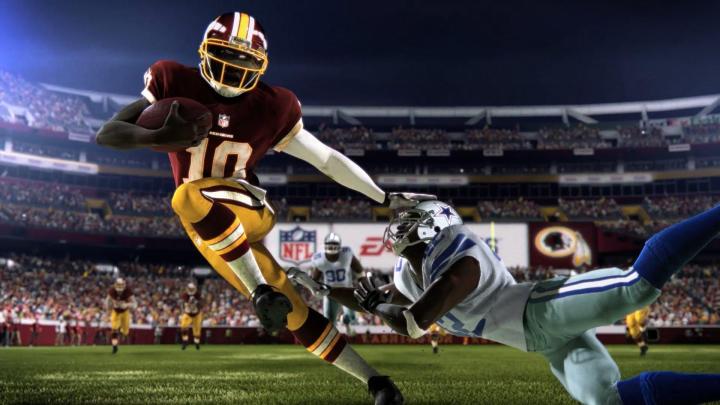Although Capcom’s Monster Hunter series is more popular than ever in the West, it’s still a daunting series to get into because of its overbearing tutorials and complicated UI. Koei Tecmo development team Omega Force didn’t want to repeat this mistake with Wild Hearts -- its upcoming fantasy monster-hunting game with a complex offensive crafting element. To solve this issue, it partnered with Electronic Arts’ EA Originals label to better understand how western players prefer to be treated in the earliest stages of a complicated adventure.
“We wanted to understand better how this game might be received by players in different parts of the world,” Co-Director Takuto Edagawa said when discussing the fruits of the EA partnership. “Players around the world don’t tend to like information being over-presented. They don’t want you to explain too much; they want to learn more in a hands-on way by experiencing it themselves through play.”
WILD HEARTS | 7 Minutes of Gameplay
Digital Trends put this to the test with our playable three-hour build of the earliest parts of Wild Hearts and found its introduction and tutorials to be better than anything Monster Hunter has done. Within 30 minutes, Wild Hearts players should be familiar with the basic concepts the game deals with and be set for what’s shaping up to be an enjoyable cooperative hunting and crafting adventure.
A wild hunt
“One thing that was very important to us was to not do a lot of explaining and then get into the story and gameplay,” Edagawa tells Digital Trends. “We wanted you to be able to play as soon as possible. We know that our players want to experience the game and world as soon as they can, so that was the fundamental approach we took with the opening.”
Wild Hearts begins peacefully, with a lone hunter walking through a forest rife with small friendly Kemono creatures. Soon, a small-time hunt begins as the player spots a deer-like Kemono. During this hunt, players will learn the basics of the camera and movement controls, the attacks at their disposal during combat, how to climb ledges with limited stamina, and how to sneak up on an enemy.
These are some basic fundamentals in hunting games, but the difference compared to Monster Hunter Rise is that the game isn’t constantly stopping the player with long cutscenes or large text boxes to explain basic things. Text boxes only appear if players choose to activate them when a tutorial pops up.
WILD HEARTS Official Reveal Trailer
The best game openings get right into things, which Wild Hearts successfully does. According to EA Originals Executive Producer Lewis Harvey, this is the aspect of the game Koei Tecmo wanted to work closely with EA on, although EA provided some character and world design input to the Japanese development team at Omega Force as well.
“EA has a great wealth of experience in its user research division, and we were able to provide a huge amount of testing and data to Koei Tecmo that really helped them fine-tune the game and make critical decisions around their feature set,” Harvey said. “A lot of the creative input and feedback we have given has been around tutorialization, onboarding, and clarity of features and UI to players.”
The hunt continues
The setup EA and Koei Tecmo settled on was already effective but wasn’t quite over yet. I soon came across a mystical being calling themselves Mujina. During a discussion with them, I established my character’s backstory, customized their look, learned more about the Kemono, and got my first significant objective: go to the nearby town of Minato.
Before I could do that, though, the environment around us quickly changed and was overtaken by ice. I used the skills the game had effectively taught me by that point to hunt down the source, a giant ice wolf Kemono, and I engaged them in battle. Unfortunately, this fight was impossible to win, so my character was defeated and tossed into a deep cave. That’s when Mujina reappeared and activated my Karakuri, a little device my hunter found in the last hunt and carried with them.
Then came the second part of the tutorial, which focused on this unique system. During development, Koei Tecmo decided to make crafting in Wild Hearts not just a defensive or preparation thing but something that can help during exploration and fights. To get out of this cave, I had to build up boxes of Karakuri to help me climb up a wall and then build more to create a vantage point I could aerially attack enemies from.
Karakuri building skills are critically important when preparing for hunting large Kemono, too. After escaping the cave, I used the Karakuri more traditionally to build a camp near a girl I found unconscious on the ground. Once I did that, another giant Kemono that looked like a giant rat with plants growing out of it attacked, and I set off on the first real hunt of the game, concluding the opening and kicking off the true Wild Hearts adventure.
While a lot more pleased me afterward -- like the colorful world design, attack damage numbers, and fact that Karakuri remains in the world map after a hunt to remind you of previous exploits -- this opening is what stuck with me.
Sayonara, Monster Hunter
I’ve tried to get into the mainline Monster Hunter series multiple times but always found the beginning of those games off-putting because of how daunting their openings and tutorials are. The king of this genre has an approachability problem, and Wild Hearts has a great chance of becoming the preferred option for new players thanks to how it handles player onboarding. Couple that with a cleaner UI, and this Wild Heats already has a better user experience -- even just 30 minutes into a preview build I played months ahead of its launch.



